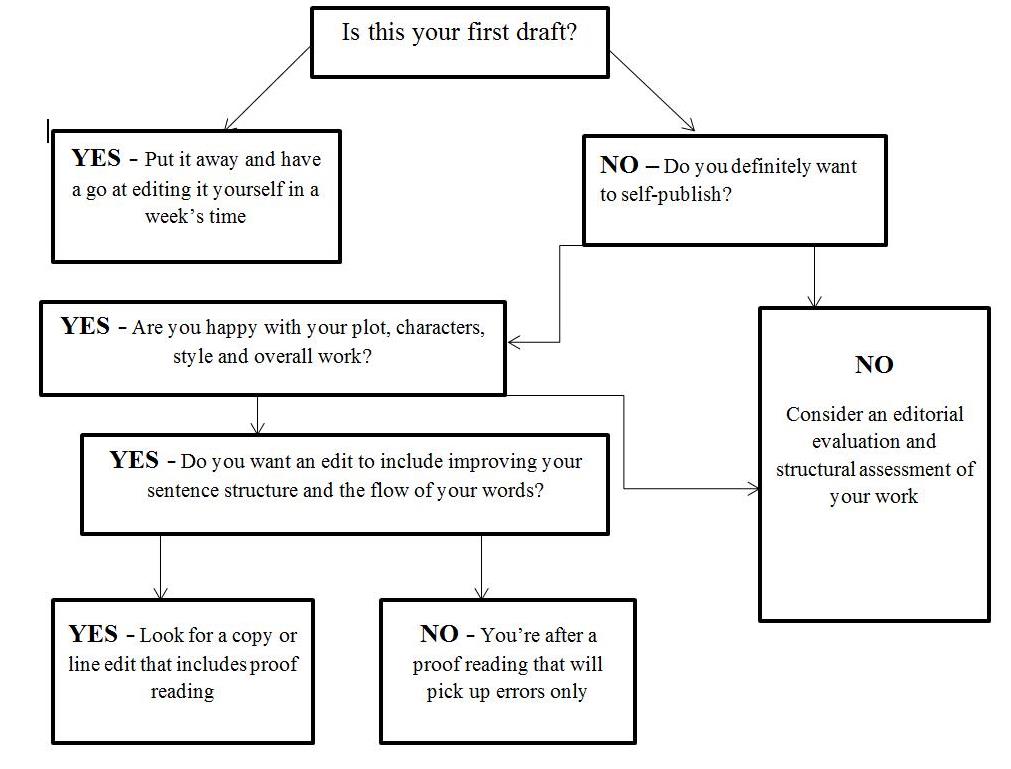Our editor Cressida Downing talks you through the different editorial services self-publishing providers may offer - and gives her advice on how you can tell which service is best for your manuscript.

A piece of advice you’ll see time and again when considering self-publishing, is to get some editorial help. But what is the difference between the different sorts of editing and how can you tell which one you need?
The best resource for checking the credentials of self-publishing editorial services is the excellent www.theindependentpublishingmagazine.com - run by Mick Rooney. He has reviewed the vast majority of self-publishing services out there and is a great first point of call.
The second place to look is on a large writers’ forum, ask around before signing up with anyone and you should hear pretty quickly if there are any particular businesses that give a good service – or are worth avoiding. Some self-publishers keep lists of editors but don’t offer any in-house services.
Before you start looking, do consider whether your editor is likely to be American or British. If you want to publish globally, you can decide whether you’re writing in ‘American English’ or ‘British English’, but I would always advise you stick to whichever is your native tongue. This may sound picky but the spelling can be very different, a lot of slang terms are confusingly similar but distinct, and the cultural references are different.
For this article, I’m going to focus purely on editorial services. What do you want from your editor?

Now that you know what you actually want in terms of an editorial service, it becomes more important to see what different sites are offering.
So the nitty gritty of the editing services on offer…
Each website advertises the range of services slightly differently, so learn to look out for the key terms that will signify what you’re actually going to get.
For proofreading or a line edit – the words are punctuation, spelling and grammar. Any service that offers a check on these will be looking for errors such as misspelled words, words that are correctly spelt but mean something different, misuse of apostrophes, and so on.
For copy editing where the editor will restructure sentences and phrases to make your work flow better, look out for sentence structure, sentence flow and clarity. They will be picking up all the errors inherent in a proof read, but will also make your work sound more elegant, substituting frequently used words if they crop up too many times for example.
For a structural edit, when you’re asking an editor to evaluate how well you’re doing as a writer, look for key terms such as character, plot, style and pace. An editor will reading your work in the guise of a very critical reader, giving feedback on all aspects of your writing.
Where it gets confusing…
‘Core’ editing sounds like you’re going to get a deep structural edit, working with the core of your writing. None of the websites advertising ‘core editing’ mean that – they are using it to describe what I would call ‘basic’ editing – in short, proof reading, line and copy editing.
Editing ‘plus’ doesn’t necessarily mean extra editing. It can mean proof-reading for an author who doesn’t have English as a first language, or working on a longer manuscript than their standard package allows for.
‘Advanced’ may mean exactly the opposite! An ‘advanced’ edit could be called for if an author needs a lot of basic help, just more than they normally allow time for.
‘Layout and structure’ can mean formatting your document ready for turning into an e-book and have nothing to do with the structure of your plot or writing.
‘Evaluation’ – sometimes this means evaluating your work to give you suggestions on which service they suggest you buy – rather than an actual evaluation of your writing.
‘Coaching’ will mean calling and talking through your work, or emailing you with suggestions as you write various different drafts.
Whichever edit you choose, and whichever service you go with, remember to do the first edit yourself. There is nothing more frustrating than reading through an editor’s changes thinking ‘oh yes, I knew about that, I’d noticed that.’
Comments